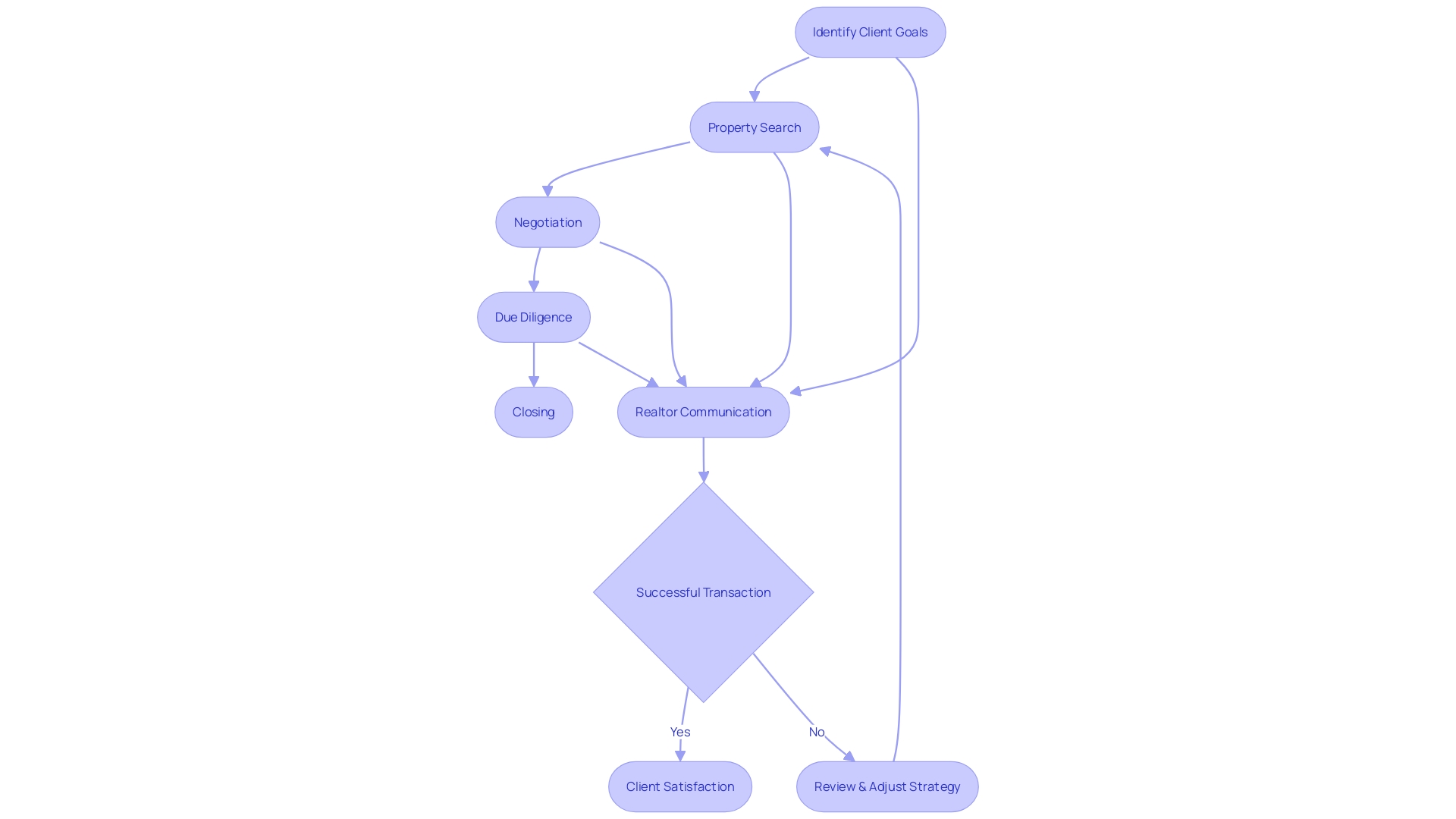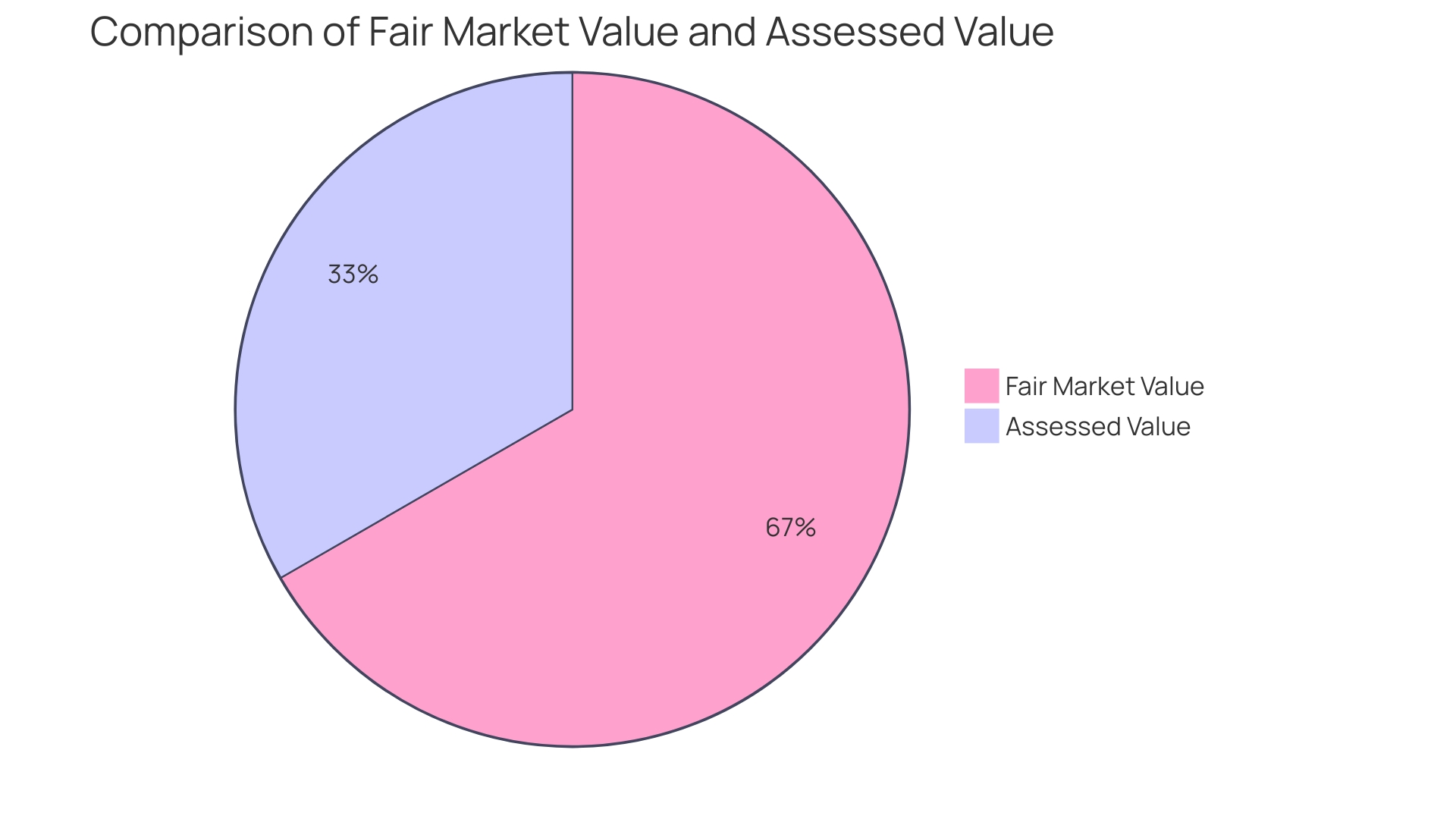Introduction
Navigating the complex commercial real estate market requires the expertise of a skilled business realtor who can guide clients through transactions involving office spaces, retail locations, industrial facilities, and investment properties. These professionals delve into the unique goals and preferences of each client, utilizing their knowledge to identify opportunities that align with the client's aspirations. From securing an ideal spot for an upcoming venture to maximizing returns on a property sale, business realtors are dedicated to helping their clients succeed.
In this article, we will explore the invaluable role of business realtors in the commercial real estate industry, their strategies for success, and the evolving landscape they navigate.
Understanding Business Realtors
Navigating the complex commercial real estate market requires a skilled business realtor who can guide clients through transactions involving office spaces, retail locations, industrial facilities, and investment properties. These professionals delve into the unique goals and preferences of each client, utilizing their expertise to identify opportunities that align with the client's aspirations, such as securing an ideal spot for an upcoming venture or maximizing returns on a property sale.
One striking example of personalized brokerage services comes from a case where a brokerage firm assisted an American client residing in Japan. They meticulously combed through hundreds of properties to pinpoint five that matched the client's specific requirements—a testament to the dedication and detailed work of proficient brokers.
Moreover, the commercial real estate landscape is continually evolving, as highlighted by the rapid growth of data centers spurred by advancements in AI and machine learning. However, limited power availability poses a challenge, prompting the sector to explore green building practices for sustainable expansion.
While the industry adapts to fluctuations in interest rates and property valuations, the value of a knowledgeable realtor remains clear. They not only facilitate transactions but also provide critical insights into the market's direction. For agents, staying current with trends and statistics is imperative, as the American work landscape changes, influencing homebuying patterns and preferences.
Finally, effective communication is a non-negotiable skill for successful real estate agents. Whether it's bridging language barriers or coordinating complex sales processes, clear and concise communication ensures all parties are informed and confident throughout the transaction.

Navigating the Complexities of Commercial Real Estate
Navigating the commercial real estate market requires a combination of sharp insight and professional guidance. Business realtors stand out as indispensable partners, leveraging their in-depth knowledge of local and national market trends, property valuation, and regulatory landscapes to steer clients through the complexities of buying, selling, or leasing properties. By conducting thorough market research and tapping into their extensive networks, these experts pinpoint lucrative investment opportunities and provide a clear analysis of a property's potential, ensuring that clients make informed decisions tailored to their financial goals.
A case in point is Marcus & Millichap, which has built a robust presence in commercial real estate investment sales, offering clients access to a diverse collection of exclusive listings. Their growth from a single office in California to over 80 locations underscores the value of specialized expertise in this sector. As the industry evolves with emerging trends such as green building practices and the expansion of data centers, staying well-informed and connected with seasoned professionals like these can make all the difference in a successful commercial real estate venture.

Property Valuation and Market Analysis
Business realtors are pivotal in determining the fair market value of commercial properties, a process that demands meticulous analysis of various factors. By examining the location, current condition, potential income streams, and recent comparable sales, they provide a crucial service for both buyers and sellers. For instance, consider the rigorous efforts of consultants who sifted through hundreds of Akiya properties in Japan, matching them against specific client criteria.
This highlights the importance of personalized valuation over mass appraisal systems used by taxation districts, which often lack the nuanced approach necessary for individual properties. As the real estate industry evolves with technological advancements, such as the integration of AI and sustainable practices, the role of realtors in conducting detailed market analysis becomes increasingly significant. This comprehensive approach to valuation ensures that all stakeholders, from investors to local governments seeking tax revenues, are equipped with accurate and relevant financial information, ultimately guiding informed decision-making and successful negotiations.

Marketing and Listing Commercial Properties
Realtors specializing in business properties utilize a combination of innovative marketing strategies and digital tools to showcase commercial real estate effectively. By crafting compelling listings that accentuate the unique features, potential functionalities, and lucrative investment prospects of a property, they capture the interest of prospective buyers and lessees. Harnessing the capabilities of advanced analytics tools like Google Analytics and Facebook Pixel, they are able to track and optimize their marketing efforts.
This approach, paired with targeted keyword research for PPC campaigns, ensures that properties receive optimal visibility across various online platforms. Strategic partnerships with industry leaders such as Strategic Solution Partners further enhance the reach and efficacy of their marketing initiatives, providing access to specialized knowledge and resources. Result-driven methods, such as those employed by the Fairmont Monte Carlo, which leveraged TravelAds to significantly boost room bookings during the off-season, demonstrate the tangible benefits of a well-executed digital marketing strategy.
With a 95:1 return on ad spend and an 85% year-over-year increase in room nights, the success of these campaigns is undeniable. As the real estate landscape continues to evolve, with emerging forces reshaping sectors like office spaces and data centers, professionals in the field are adapting by integrating green building practices and AI technology to meet the high demand and overcome challenges such as limited power availability. In an economic climate where interest rate hikes by the Federal Reserve have tempered transaction volumes, a strategic, data-driven marketing approach remains a cornerstone for long-term success in the commercial real estate market.

Negotiating and Closing Deals
Business realtors play a pivotal role in ensuring the smooth execution of property transactions, with their negotiation skills being a key asset. They go beyond merely representing their clients; they become their clients' advocates, masters in crafting deal terms, and strategists in determining fair purchase prices and lease agreements. Through adept communication, these professionals dissect market trends and untangle the legal intricacies, culminating in outcomes that benefit all involved parties.
The art of negotiation in realty is exemplified by experts like Chris Voss, a former FBI lead international kidnapping negotiator, who applies his high-stakes negotiation strategies to the business realm. His techniques underscore the importance of self-management and strategic thinking in negotiations—a skill that's invaluable whether selling a business or securing a real estate deal.
Real estate agents who excel in communication can serve a diverse range of clients, like the Spanish-speaking agents in Ohio who bridge language barriers and foster inclusivity in the property market. This skill is recognized as one of the top ten essential abilities for a successful agent, highlighting the significance of clear and effective interaction in the real estate industry.
The landscape of real estate is ever-evolving, and with forthcoming changes like buyer representation agreements becoming mandatory for MLS listings, the value added by a skilled negotiator becomes even more apparent. As the market continues to reward those who enhance the transaction process, adept negotiation remains a cornerstone of a realtor's expertise.
Guiding Clients through Legal and Financial Processes
Navigating the complexities of commercial real estate transactions is a multifaceted task that involves coordinating with a team of experts. Business realtors are at the center of this intricate process, providing essential guidance to ensure a seamless transition during property acquisitions or sales. Their role extends beyond simple brokerage services; they are instrumental in liaising with legal professionals, financial institutions, and other stakeholders to guarantee that every document is meticulously reviewed and every deadline is strictly adhered to.
For instance, when buying out someone's ownership interest in a property, it involves meticulous valuation, equitable distribution of shares, and, often, intricate financing arrangements. Real estate professionals are adept at exploring various funding opportunities, whether through personal loans, mortgage refinancing, or alternative financing solutions, to support their clients' objectives.
Moreover, realtors are also crucial in assisting clients with the regulatory and compliance landscape of real estate, as evidenced by their role in Akiya property acquisitions—a process that requires a deep understanding of the local market and regulatory environment, as demonstrated by a case study from Chiba Prefecture, Japan.
Furthermore, the real estate market's current trends, such as the recent high-value sales in San Jose, underscore the significance of having knowledgeable professionals to navigate these transactions. With their expertise, realtors can provide insights into market dynamics and help clients make informed decisions.
In the digital age, the services of a virtual assistant in real estate have become increasingly valuable, offering remote support that ranges from managing schedules to organizing property listings, thereby streamlining operations for agents and brokers.
Ultimately, the counsel of a real estate attorney, or lawyer, is paramount in ensuring that all legal aspects of a transaction are addressed. As industry experts like Kevin O'Leary suggest, embarking on real estate ventures can be a path to realizing one's dreams, and having the right legal advisor can be the key to protecting those aspirations.
In light of the emerging online education sector, real estate professionals are also embracing new technologies to remain abreast of the latest industry developments and legal precedents, ensuring they can offer the highest level of service to their clients. With the combined expertise of real estate attorneys, virtual assistants, and savvy brokers, clients can confidently embark on their real estate journeys, secure in the knowledge that every detail is being expertly managed.
Building Long-Term Relationships
Top-notch business realtors are renowned for forging enduring connections with their clientele, a pivotal aspect of thriving in the real estate domain. Such professionals devote themselves to understanding every nuance of their clients' aspirations and hurdles. For instance, consider the case of a client seeking a serene Akiya property away from Tokyo's hustle.
By meticulously listening and tailoring the search to the client's vision, the realtor exemplified exceptional service, proving that grasping the client's communication style and personal goals is the cornerstone of a fruitful relationship. The advent of Artificial Intelligence is poised to revolutionize client interactions, promising expedited services and an enhanced customer experience, showcasing the industry's continuous evolution. Real estate advisors are also expected to stay on the pulse of market dynamics by actively participating in forums and conventions, which serve as fertile ground for innovation and knowledge exchange.
These professionals are often confronted with the challenge of educating stakeholders about retail-focused asset SOPs, underscoring the importance of expertise in building credibility. By staying informed, much like Bryce Grandison who delves into various knowledge resources to stay ahead, realtors can earn the trust and confidence necessary for a thriving practice. Furthermore, the ability to translate what may be perceived as weaknesses into strengths, as demonstrated by Natasha Sadikin, is invaluable in navigating complex interactions and achieving productive outcomes.
As the landscape evolves with emerging homebuyer demographics, realtors who provide unparalleled service and cultivate trust through personalized attention are more likely to secure repeat business and referrals, cementing their reputation as trusted advisors.
Conclusion
Business realtors are essential in navigating the complex commercial real estate market. They guide clients through transactions, identify opportunities, and help them succeed. Staying current with trends is crucial as the industry evolves.
Effective communication and bridging language barriers contribute to their success.
Realtors excel in determining fair market value through meticulous analysis. Their personalized approach ensures accurate financial information. They utilize innovative marketing strategies and digital tools to showcase properties effectively.
Strategic partnerships enhance their marketing efforts.
Negotiation skills are pivotal in closing deals and securing favorable outcomes. Realtors act as advocates, crafting fair terms and agreements. They guide clients through legal and financial processes, ensuring a seamless transition.
They liaise with professionals to guarantee meticulous review and adherence to deadlines.
Top-notch realtors forge enduring connections with clients by understanding their aspirations and tailoring their services. Staying informed and building credibility through expertise are crucial for long-term relationships.
In conclusion, business realtors are indispensable partners in commercial real estate. Their expertise, dedication, and personalized approach contribute to clients' success. By staying informed, adapting to trends, and providing unparalleled service, realtors thrive in this ever-evolving landscape.




